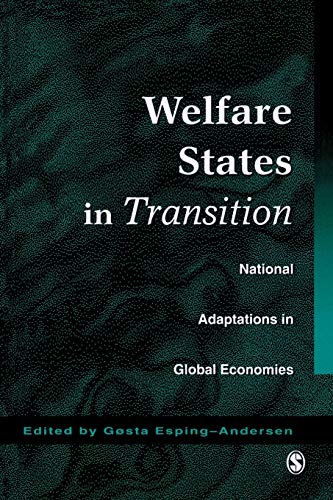Welfare States in Transition
no information available
Published in Association with UNRISD, United Nations Research Institute for Social Development This wide-ranging comparative analysis of contemporary and future changes in welfare states examines the different trajectories of the welfare states of Europe, North America, the Antipodes, and the emerging scenarios in Latin America, East Asia, and central and eastern Europe. Leading experts from these regions explore the current structures of social protection, consider the causes of the current welfare state crisis, and highlight evolving trends for welfare policy. The emerging picture is one of varied policy choices in each region. Contributors argue that anxieties about population aging as a cause of welfare decline are exaggerated and that the key issue for welfare states is enabling women to work and form families simultaneously. They suggest that the neoliberal strategy of deregulation and heightened inequality is no real solution because its negative side effects. The authors conclude that a viable positive-sum solution would involve social investment strategies, offering guarantees against entrapment in poverty or low-paying jobs. Professionals and researchers in comparative social policy, sociology, economics and political science will find Welfare States in Transition an invaluable resource. ... Read more Read less











